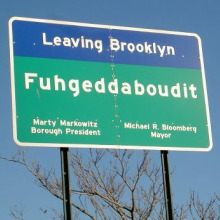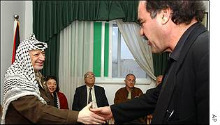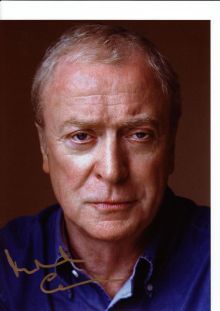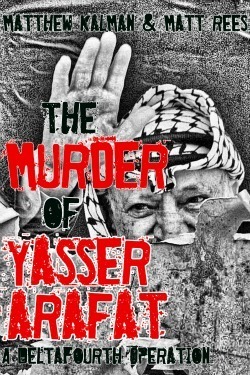Matt Rees's Blog - Posts Tagged "yasser-arafat"
Why's a Palestinian sleuth in Brooklyn?
 I’ve been called the Dashiell Hammett of Palestine, the John Le Carre of the Middle East, the James Ellroy of…Palestine, the Graham Greene of Jerusalem, and the Georges Simenon of the Palestinian refugee camps. Depends which review you happen to have read.
I’ve been called the Dashiell Hammett of Palestine, the John Le Carre of the Middle East, the James Ellroy of…Palestine, the Graham Greene of Jerusalem, and the Georges Simenon of the Palestinian refugee camps. Depends which review you happen to have read.Until now I’ve published three novels about Omar Yussef, my Palestinian schoolteacher/sleuth. Omar has been described as the Philip Marlowe of the Arab street, the Hercules Poirot of the Near East, Sam Spade fed on hummus, and Miss Marple crossed with Yasser Arafat.
Why then is my new Omar Yussef novel THE FOURTH ASSASSIN,/a> set in New York City? Not in the Middle East, the Near East, Palestine, the Levant, the Fertile Crescent, or any other place where Yasser may be fornicating with dear old Miss Jane Marple.
I lived in New York six years, until I came to Jerusalem in 1996. I know it better than any city outside the Middle East. I had a lot of fun in New York. Maybe too much fun. In no other place in the world can a young man so overindulge in the temptations originally offered in the city of Sodom. Which in reality is close to where I live now in Jerusalem. Though you wouldn’t know it to look at the place.
I know New York with my eyes closed. Literally. In my twenties, after leaving some bar or club, I blacked out on every line on the subway map.
I dated women from every borough of the city, from Westchester and upstate. From the 201 area code (dare I say, New Jersey.)
I married a girl from the North Shore of Long Island, and in my continuing effort to know New York in all its facets, when we divorced, I married a beautiful woman from the South Shore of Long Island.
But each time I returned, no matter how well I thought I knew the place, New York seemed different. The change became most apparent after 9/11. I wanted to understand it through the eyes of Omar Yussef.
That’s why he finds himself in Brooklyn in THE FOURTH ASSASSIN. Visiting the area of Bay Ridge that has become known as “Little Palestine,” for the influx of Palestinian immigrants.
Little Palestine isn’t a community of Palestinian intellectual émigrés, such as sprang up in European capitals in the 1970s. It’s a new wave of young men mostly, saving to bring their families over, working two or more jobs. Theirs is a typical American immigrant story.
Except for the FBI agents going through their trash.
The Bureau didn’t uncover any broad conspiracy in Little Palestine. But it did add to the tensions between the Arab community and other New Yorkers after the attack on the Twin Towers.
That’s the situation into which I wanted to place Omar Yussef. Mutual distrust, after all, makes for good crime fiction.
In Brooklyn, it also happens to be real.
Published on February 11, 2010 23:51
•
Tags:
bay-ridge, brooklyn, crime-fiction, dashiell-hammett, fbi, fertile-crescent, georges-simenon, graham-greene, hercules-poirot, james-ellroy, jerusalem, levant, little-palestine, long-island, middle-east, miss-jane-marple, miss-marple, near-east, new-jersey, new-york, omar-yussef, palestine, palestinians, philip-marlowe, sam-spade, the-fourth-assassin, upstate-new-york, westchester-county, yasser-arafat
Inventing the Palestinian detective
 The dead man's mother raged and wept as she told me how she’d discovered her son’s body, in the cabbage patch outside her home. She’d gone down on her knees, she said, touched his blood and wiped her fingers on her face, calling out that God is most great.
The dead man's mother raged and wept as she told me how she’d discovered her son’s body, in the cabbage patch outside her home. She’d gone down on her knees, she said, touched his blood and wiped her fingers on her face, calling out that God is most great.As the winter wind came cold off the Judean Desert, I watched her tears and thought: “I have to write a novel about this.”
Forgive me if that sounds callous, but I’m a writer. Or, I should say, that’s the moment when I became a writer.
I was Time Magazine’s Jerusalem bureau chief, covering the violence of the Palestinian intifada, when I went to that bereaved mother in her village on the edge of Bethlehem in 2002. I had always written fiction, but only published a few short stories. In the midst of the despair that engulfed Israelis and Palestinians, I found the very thing that could make me happy – the material for my series of Palestinian crime novels.
The killing of that woman’s son as he crept home in the dark was the basis for the opening death in my first novel “The Collaborator of Bethlehem.” The book won a Crime Writers Association Dagger. Since then I’ve published two more crime novels set in the Palestinian towns.
They’re a response to the emotional questions that, as a journalist, I was never able to answer. Strangely, fiction proves to be a better way to understand extreme events than journalism.
Since the first time I set foot in the West Bank in 1996, I had grown disillusioned with the ability of journalism to convey the depth of what I learned about the Palestinians. Back then, I visited the family of a Nablus man tortured to death in one of Yasser Arafat’s jails. The news article I wrote was a good one, uncovering the internal Palestinian violence so often overshadowed by the more spectacular conflict with Israel. But my impressions were much deeper.
I was struck by the candor and dignity with which the dead youth’s family spoke to me; the sheer alien nature of the place thrilled me. At the entrance to the family’s house in the casbah, an old oil drum held black flags and palm fronds, symbols of Islamic mourning. Men sat around smoking under a dark awning. I felt a powerful sense of adventure, as though I had uncovered an unknown culture.
The lawlessness of Palestinian life also gave me great characters for my fictionalized good guys. But also the villains. Unfortunately there are many Palestinians who have strong motivations to kill each other. I’ve spent a lot of time over the years with some of these men, trying to learn why they take the path of violence—time that has led to a deeper characterization of the villains in my books.
With my new novel, “The Fourth Assassin,” I brought my sleuth Omar Yussef to New York because I wanted him to confront the most important issue of the last decade – an issue which is crystallized in its most horrifically concrete form in the city of 9/11.
It’s a natural progression for a series that began in the cabbage patch near Bethlehem. When I stood there, it was seven months after the attacks on New York and Washington. The questions posed to anyone thinking about the Middle East had just become so much more complex. Too complex and emotional for journalism to encompass them and, all these years later, for politicians, too.
Whether it’s a single sniper’s bullet cutting through the chest of a man outside his mother’s house or a jetliner bursting through a 110-story building, my novels are aimed at the most explosive points in our recent history. That’s why I simply had to write them.
(I posted this on a joint International Crime Authors blog I write with three other writers. Check it out.)
Published on February 24, 2010 22:49
•
Tags:
9-11, assassination, bethlehem, blog, brooklyn, crime-fiction, journalism, judean-desert, middle-east, new-york, omar-yussef, sniper, the-collaborator-of-bethlehem, the-fourth-assassin, time-magazine, united-nations, washington, west-bank, yasser-arafat
Memo to Oliver Stone
 In Israel, the Jews control the banks! They fill all the top positions in the media! They are behind all the major political powerbrokers! They even print the money!
In Israel, the Jews control the banks! They fill all the top positions in the media! They are behind all the major political powerbrokers! They even print the money!Someone should look into this, Oliver, because I don’t think it’s just coincidence, and I know you’ll agree. I think you’re the man to expose it.
You said in an interview published this weekend that Hitler was “a Frankenstein,” and then went on to add that the Dr. Frankenstein who created him was an amalgam of U.S., British and German industrialists. You added that the Nazis killed more Russians than Jews and opined that, in spite of this, we tend to think of the Holocaust as a Jewish thing. (You said something else about having “walked in Hitler’s shoes…” but let’s just put that aside for now.)
On the one hand, Oliver, you’re an oaf who has had to apologize for his “clumsy association” about the Holocaust. Well, the art world needs oafs from time to time. Because on the other hand, Oliver, we all ought to remember that reality is much more sophisticated than the explanations of history which are handed down to us, honed and narrowed until they read very simplistically, ignoring inconvenient facts and allowing people to shout down those who point out such facts.
Read the rest of this post on my blog The Man of Twists and Turns.
Published on July 29, 2010 01:26
•
Tags:
benny-morris, frankenstein, glamorgan, hitler, holocaust, israel, jews, nazis, oliver-stone, palestinians, russians, the-doors, wales, yasser-arafat, zeev-sternhell
Ridiculous publicity ideas for authors
 In less than two months, my next novel MOZART’S LAST ARIA will be published in the UK (the US publication date is November). This means I have to start thinking about publicity.
In less than two months, my next novel MOZART’S LAST ARIA will be published in the UK (the US publication date is November). This means I have to start thinking about publicity.Naturally I’ll be doing the usual kinds of things that writers do these days. The promo video is already made and can be seen on www.mattrees.net. It will be particular hit with you if you want to see me wearing a powdered wig and silk stockings; it also features my adorable three-year-old son dressed as Little Mozart. One for the ladies, I’d say.
I shall be Facebooking, guest blogging, even tweeting perhaps, and sending emails to everyone who ever wrote an email to me. But all writers do that stuff.
So I shall also be adding some truly ridiculous publicity stunts to my “online presence.” Given that some of the other things necessary for publicity are a bit of a drag, my only criteria for my ridiculous stunts is that they ought to be fun.
For example, stay tuned for readings from MOZART’S LAST ARIA and some of my previous novels by major celebrities such as Michael Caine, Richard Burton, and Sean Connery.
Good publicity, eh? But surely expensive, you say.
Not if you work on your impersonations.
Read the rest of this post on my blog The Man of Twists and Turns.
Published on March 24, 2011 01:13
•
Tags:
blogs, crime-fiction, dame-edna-everage, michael-caine, mozart-s-last-aria, publicity, richard-burton, sean-connery, winston-churchill, yasser-arafat
What's D4? My new alternative news venture reshapes journalism
 Journalists know that their readership is changing. The primary approach to this change has been, frankly, to panic. And of course to fire people. To offer the same style and content, but with links to Twitter feeds and Facebook pages. I've come to the conclusion that these things don't help. What readers want is a different style of journalism.
Journalists know that their readership is changing. The primary approach to this change has been, frankly, to panic. And of course to fire people. To offer the same style and content, but with links to Twitter feeds and Facebook pages. I've come to the conclusion that these things don't help. What readers want is a different style of journalism.With my new alternative news venture DeltaFourth, I've written a long piece in the style of a novel. I aimed to make the actual writing respond to the excitement and the revelations of the content. In this case, it's called The Murder of Yasser Arafat. So I wanted to make it read like a thriller.
That idea is anathema to many traditional journalists. The notion of objective journalism, particularly in the U.S., is to take something exciting and report "just the facts." Ah, but facts are so dull. Try this: Yasser Arafat was murdered. Kind of interesting, makes you want to know how, but also makes you think "Oh, so that's all there is to it." Doesn't make you think: "Wow, how did that happen and who did it?" Read my piece and you'll keep going to the end because of the style I brought to it from my fictional crime writing.
I came to this conclusion with my pal Matthew Kalman. Between us we have almost 60 years of journalism experience. We've always been trying to make our journalism more exciting and readable. But we often find that there's a fat guy or an argumentative lady in New York or London (known as an editor) determined to make it as bland as possible. By publishing our own work through our own company for download, we eliminated the fat guy and the argumentative lady.
It's also a generational shift in the attitude to writing. I spoke to some teenage schoolkids recently. One of them has written a sci-fi novel and was intrigued to know about the new validity of "self-publishing" online. By publishing her work (once it's ready), I expect she'll bring young people to reading a literature of their own by one of their own that will later translate into reading of other works.
I hope you'll enjoy DeltaFourth as we produce more pieces. We'll have one soon (about the time of the Israeli election) about Israeli Prime Minister Benjamin Netanyahu and why he really wants to be a failed prime minister....
Published on January 11, 2013 22:32
•
Tags:
blogging, deltafourth, journalism, middle-east, online-writing, palestine, social-media, writing, yasser-arafat
Podcast: Journalism's Special Forces
My latest podcast is about my new alternative news project DeltaFourth. I read from THE MURDER OF YASSER ARAFAT, the first explosive ebook from DeltaFourth. The ebook reveals how Yasser Arafat was murdered by people in his inner circle. It's the prototype for DeltaFourth's forthcoming series of long-form journalistic ebooks -- stunning breaking news written in a hard-boiled novelistic style that responds to the excitement of the events it describes.
Download the Podcast: (Download the MP3)
Subscribe via iTunes
Download the Podcast: (Download the MP3)
Subscribe via iTunes
Published on February 06, 2013 10:27
•
Tags:
journalism, middle-east, palestinians, podcast, yasser-arafat



